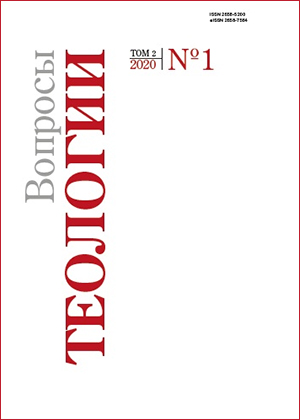Логика теологического спора в книге Иова: критика интерпретации Маймонида в еврейской философской экзегезе XIV века
DOI:
https://doi.org/10.21638/spbu28.2020.105Аннотация
статье рассматривается критическое осмысление последователями Маймонида предложенной им интерпретации книги Иова как теологического спора по поводу Божественного провидения. Маймонид приписывает Иову и его друзьям определенные мнения по этому вопросу, связывая их с некоторыми богословскими или философскими школами X–XII вв., сложившимися в контексте исламской, арабоязычной культуры. Таким еврейским экзегетам, как Ибн-Каспи и Герсонид, творившим в ином культурном контексте и писавшим на иврите, подобное распределение мнений казалось анахронизмом. Во многом следуя Маймониду, они тем не менее критиковали предложенное им распределение мнений между персонажами книги Иова, причем одним из главных аргументов была логика. В статье обсуждаются истоки подобного подхода и анализируются нюансы предложенных логических решений путем сопоставления их с экспозицией комплекса проблем, затрагиваемых Маймонидом в «Путеводителе растерянных» в связи с книгой Иова. В частности, показано, что интерпретация Герсонида, исходящая из предположения о логической полноте решения вопроса о Божественном провидении в книге Иова, может быть обоснована средствами современной формальной логики.
Ключевые слова:
книга Иова, Божественное провидение, экзегеза, Маймонид, Путеводитель растерянных, Йосеф Ибн-Каспи, Герсонид, логика
Скачивания
Библиографические ссылки
References
Загрузки
Опубликован
Выпуск
Раздел
Лицензия
Статьи журнала «Вопросы теологии» находятся в открытом доступе и распространяются в соответствии с условиями Лицензионного Договора с Санкт-Петербургским государственным университетом, который бесплатно предоставляет авторам неограниченное распространение и самостоятельное архивирование.




